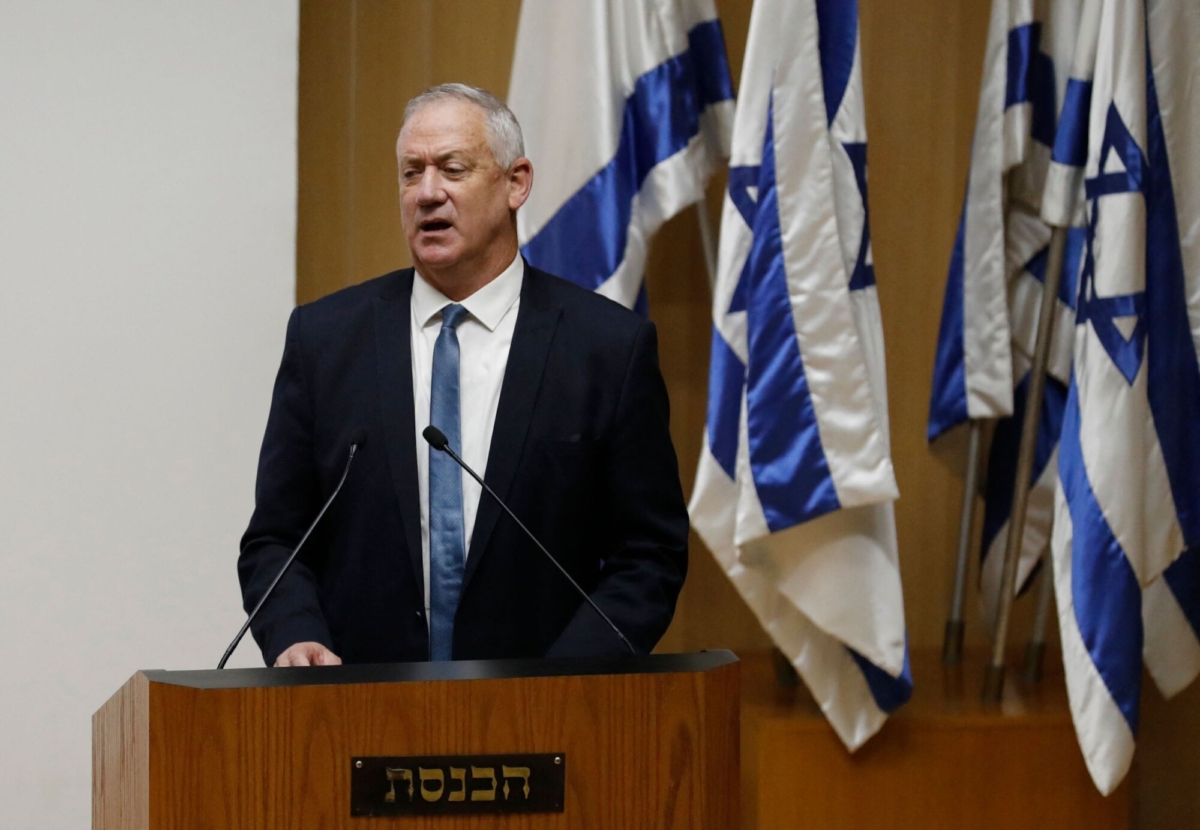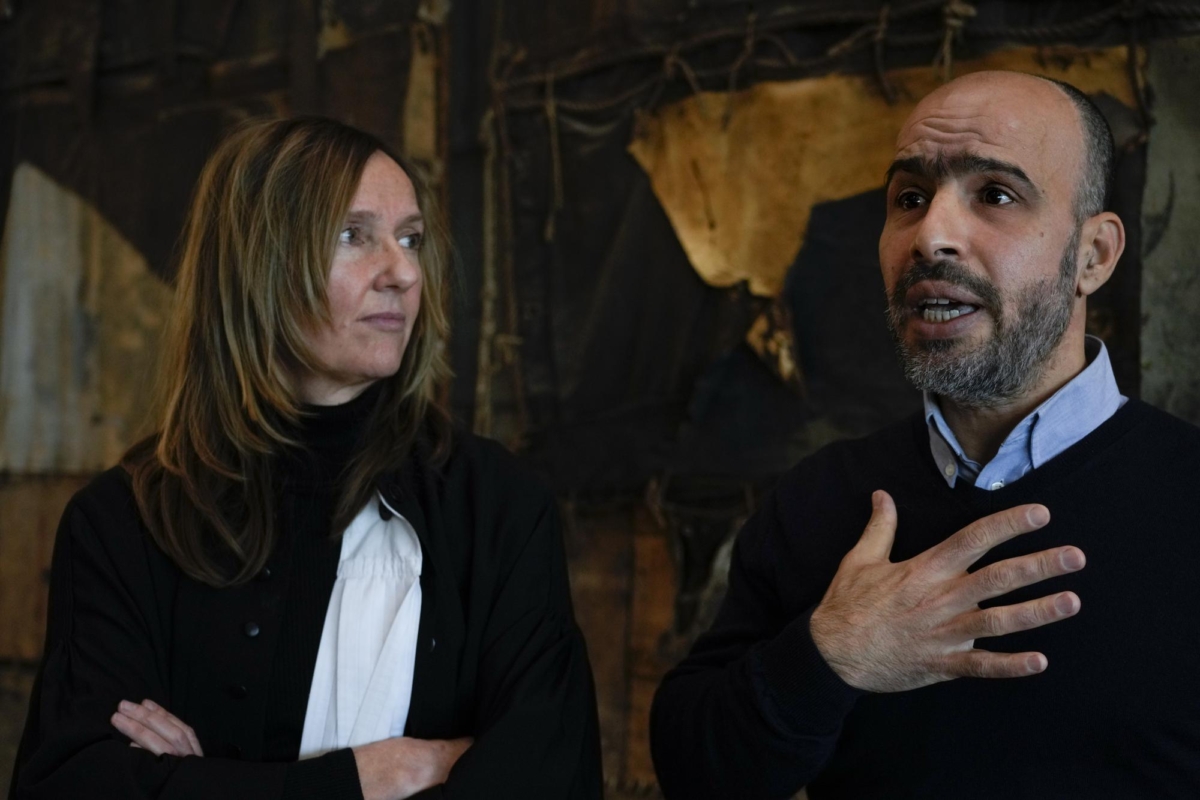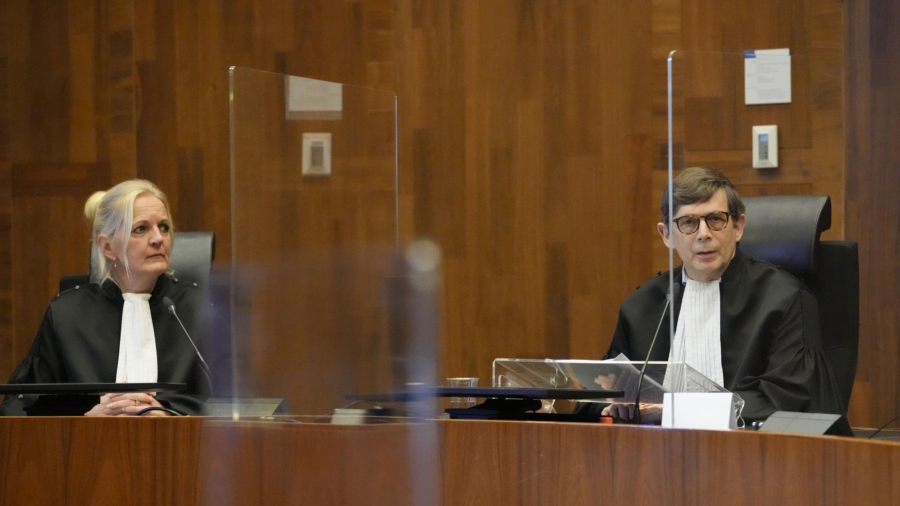A Dutch appeals court ruled on Tuesday that Israeli Defense Minister Benny Gantz and a former military official cannot face prosecution in the Netherlands over war crimes and alleged roles in a deadly 2014 airstrike in Gaza.
Ismail Ziada, a Dutch Palestinian who lost six members of his family in the 2014 airstrike, filed the case as a civil suit, accusing Gantz and former air force commander Amir Eshel of the deaths of his relatives.
He sought 600,000 euros ($660,000) in damages over the airstrike deaths, The Times of Israel reported
In January 2020, the court ruled that the case against both men couldn’t proceed because the men have “functional immunity from jurisdiction.”
Ziada wanted the Dutch court to order Gantz and Eshel to pay the damages and his lawyers argued that the men didn’t have immunity because their actions amounted to war crimes.


The Hague Court of Appeal said on Tuesday that the lower court was right to rule that Gantz, who was military chief of staff at the time of the airstrike, and Eshel had immunity because they were carrying out Israeli government policies.
“Dutch courts are not competent here to judge the claim. The [lower] court rightly decided that,” the court said. “High-ranking military personnel have carried out the official policy of the State of Israel, which renders a judgment on their actions moribund.”
It added that it was “not blind to the plaintiff’s suffering.”
Ziada said the court’s ruling was “in contradiction with any sense of justice” and branded the judges “cowards” for their decision.
The lower court said Ziada is free to sue the men in Israel. At hearings in 2019, Ziada rejected the idea that he has access to justice in Israel as “farcical as well as vicious.”

Israel’s Justice Ministry told the court before the 2020 decision that an internal Israeli military investigation determined the airstrike had killed four militants hiding in the house. It said the attack was permissible under international law. Gaza’s Hamas rulers themselves have said that two militants were in the building.
The 2014 conflict was one of the deadliest between Israel and the Palestinians in decades. The conflict left at least 2,251 dead on the Gaza side and 74 on the Israeli side.
Israel said the seven-week operation was designed to stop increased rocket fire from Gaza into Israel and destroy tunnels used for smuggling weapons and militants.
The operation was also around the same time two members of Hamas, a designated terrorist organization, abducted and murdered three Israeli teenagers while they were hitchhiking to their homes. Hussam Kawasme was arrested by Israeli forces in connection with the murders. He later admitted to being the mastermind behind the attack.
The Associated Press contributed to this report.

